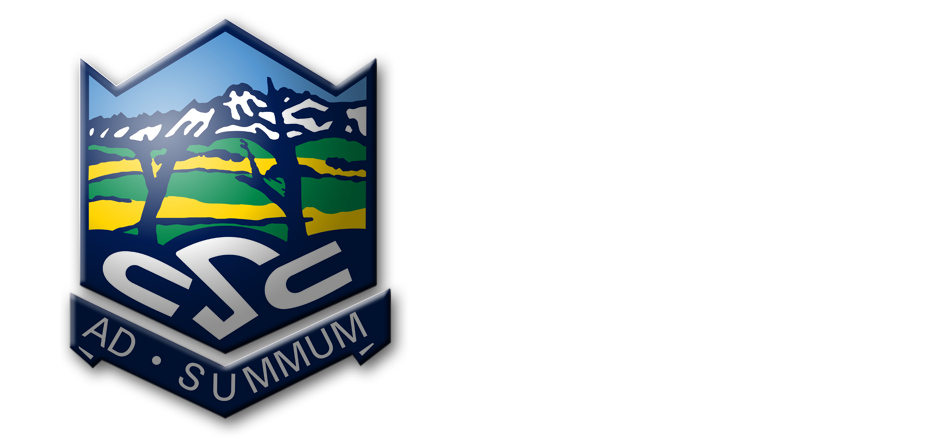
We have created this BYOD Guide to help you with this process and to answer any questions you may have during this exciting initiative at Central Southland College. Please feel free to email the ICT school coordinator, Mr. Alister Gray, with any queries: alisterg@csc.school.nz
All students at Central Southland College are encouraged to bring their own laptop to benefit from the school BYOD connected learning environment. This means access to learning resources, processing information, organising resources, communicating with others, with the overall aim to enhance teaching and learning.
Why BYOD?
Information and communication technology has a major impact on the world in which young people live. Many of our students are already using digital devices outside of school to communicate and learn in new ways.
We would like to make our school resources available so that the potential of those devices can be used to further enhance learning. This includes accessing the internet using the school wireless/fibre connection and a variety of subject specific software applications.
We have adopted Google Apps for Education. This is an ever expanding variety of applications that teachers and students are able to use both at school and home. Students will have a personal school account for email, document creation, storage, submission of work, feedback and communication with their peers and classroom teachers.
Students and teachers will discover new, innovative and exciting ways to use devices and the high speed internet to complement traditional teaching and learning in our classrooms.
Benefits of BYOD
Research highlights the following educational benefits of devices in NZ classrooms:
Greater independence and personalised learning
Improved motivation and engagement
Improved critical thinking
Greater access to information, resources and experts
Greater opportunities for collaboration
Greater access to international resources
Our staff has identified three important benefits:
Unlocking true and meaningful 21st Century opportunities for personalised, portable learning, at anytime, anywhere.
Expanding our resource base and assessment alternatives, in order to improve academic outcomes for students.
Making self management, direction and motivation for all our students, achievable goals.
Appropriate Use of Devices
Students will be required to sign a Digital Citizenship Contract, making them aware of their responsibilities as a user of the school Wi-Fi and the consequences of inappropriate use. This type of behaviour will be dealt with according to existing discipline procedures within the school.
Keeping safe online is best achieved though open communication between parents, teachers and students.
If you have any concerns about internet safety please contact the school or visit: http://www.netsafe.org.nz/
Our Recommendation
This is a common question that all schools are facing especially with the pace of technological change.
As a general guide, A Windows or Mac OS laptop with a minimum of 4gb of Ram and an i3 or equivalent processor will suffice. An overly expensive device, touch screen, large capacity storage device and graphics card are unnecessary for general school use. You may also like to consider purchasing headphones for class use when required.
A Chromebook will be suitable for most general core subject class work at CSC however, be aware that although they look like a regular laptop, a Chromebook is unable to run the majority of specialist subject software packages like Photoshop or Autocad.
In our school BYOD is more than students accessing the internet, so devices such as tablets and phones are not our recommended hardware choice for every day class work. Use of phones in class is prohibited, unless being used for a specific task at the instruction of the teacher (e.g. filming a speech practice)
Option subject teachers may have some additional information about what specifications would make for a better experience when running speciality applications. Students are encouraged to check before making purchasing decisions.
Care and Security
The responsibility to care for and secure student devices lies entirely with the student. Warranty and insurance responsibility lie with the student and family and respective manufacturer and store it was purchased from. Central Southland College will endeavour to provide secure locations for devices when not in use, but students need to be sensible.
Considerations when Purchasing a Laptop for your child
Battery Life – Should last prolonged use in class at school without the need for recharging.
Weight – Should be light enough for your child to carry around all day.
Wireless – Must be dual-band capable, and state that it has a/g/n, or a/b/g/n.
RAM – Should be 4GB or more, or else programmes may be much slower to run.
CPU – Faster is usually better, but may also reduce battery life. Often the applications used in option subjects such as Art, DTG and Graphics etc require a faster architecture.
Hard Disk Drive – Students will be using their school Google Drive accounts for storage (cloud).
You may decide what size hard drive will be suitable for personal/home use Some newer devices may feature SSD drives, which are faster, lighter, are more reliable and give longer battery life, but they are also more expensive.
Robustness – Your device should be strong enough to survive being knocked about a little. Check also that the hinges are robust as some of the cheaper devices are quite weak.
General Protection - A suitable carry case or protective sleeve.
Software - For general class use, no additional software will need to be purchased. Some subjects may require specialist software and where possible free public domain software will be sufficient (as recommended by subject teachers)
““Schools should explore not only how ICT can supplement traditional ways of teaching but also how it can open up new and different ways of learning.””
